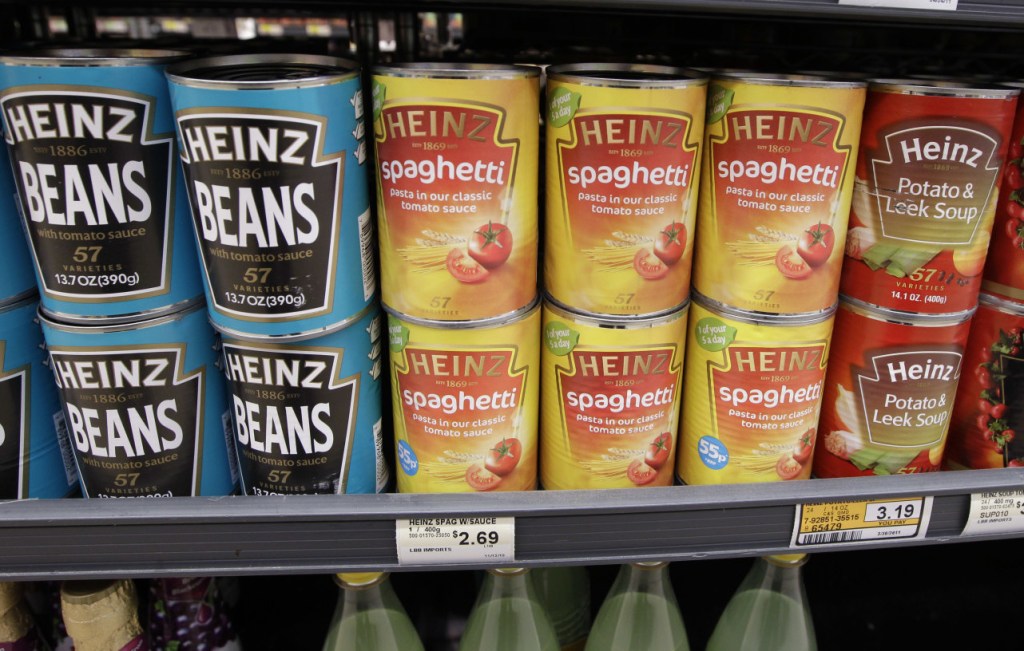It’s a common kitchen conundrum: A can of soup or vegetables that has been in the pantry for ages is well past its “sell by” date. Unsure of its safety, many Americans toss it in the trash, even though odds are the food is still edible and nutritious.
That’s the sort of widespread food waste that Maine’s Democratic U.S. Rep. Chellie Pingree hopes to target with legislation this fall.
Pingree announced Tuesday that she will introduce a comprehensive bill aimed at addressing the nation’s food waste problem in homes, stores, restaurants, schools and farms. The bill would, among other things, change the way “sell by” or “best by” dates are used on products, and educate the public about what the labels actually mean. “A lot of people mistakenly think there is some sort of government standard for ‘best by’ dates and that you have to throw out food once the date is passed,” Pingree said in a news release. “The truth is it’s the manufacturer who comes up with those dates, and much of the time the food is perfectly safe to eat well after the date has passed.”
One option under consideration is a requirement that manufacturers run a disclaimer stating that such dates are only recommendations and that food can still be safe to eat after the date printed on the package. Accurately predicting how long a food product will last is not easy, because many factors are at play.
Pingree’s bill also includes tax incentives for farmers and retailers to donate or sell “ugly produce” that otherwise might not be harvested at all. School lunch programs would be reformed so they could more easily purchase these imperfect fruits and vegetables as well.
Ben Tettlebaum of the Conservation Law Foundation, who chairs the policy subcommittee of the Mayor’s Initiative for a Healthy and Sustainable Food System in Portland, said such federal legislation is “long overdue.”
“I think the public awareness – not just in Maine but across the country – is much greater now about food waste generally,” he said.
About 40 percent of America’s food ends up being wasted, a 2012 food waste report from the Natural Resources Defense Council estimated. Too much food never gets harvested but instead rots in the field. Tettlebaum said some states have already started offering tax incentives to farmers for donating “ugly produce” to food banks and it has worked well, although some say the incentives need to be greater.
“It would be great to see more of the private sector – the grocers – getting on board with marketing these products,” he said.
Pingree announced the bill Tuesday at the New York Times’ Food for Tomorrow Conference at the Stone Barns Center for Food & Agriculture in Pocantico Hills, New York. The conference, hosted by Sam Sifton, food editor for the Times, focused on food policy this year and covered topics such as taxing sodas and reinventing fast food.
Reducing food waste could make a big difference to the 50 million Americans who are food insecure, Pingree said. “If we reduce food waste by just 15 percent, we would be able to adequately feed 25 million hungry Americans,” she said.
Jonathan Bloom, author of “American Wasteland: How America Throws Away Nearly Half of Its Food (and What We Can Do About It),” said in an interview Tuesday the issue of food waste has only hit the national spotlight in the past couple of years, and there hasn’t yet been any federal legislation to address the problem. The U.S. Department of Agriculture did some work on the issue in the late 1990s, he said, “but really since that time it’s been a pretty barren stretch in terms of trying to use policy to reduce waste in any significant way.”
“The gridlock certainly hasn’t helped the past decade or so,” Bloom said, “but to me, reducing the amount of food wasted in America is possibly one of the few issues that liberals and conservatives alike can get behind. Hopefully that notion leads to some actual success on this bill.”
Last month, the USDA and the U.S. Environmental Protection Agency set a national goal to reduce food waste by 50 percent by 2030. Bloom said Pingree’s bill is “a nice follow-up” to that and will continue the momentum.
“I’ve always felt that it’s just a matter of time before people start to realize that the waste levels are unsustainable and just ridiculous,” Bloom said.
Copy the Story LinkSend questions/comments to the editors.




Success. Please wait for the page to reload. If the page does not reload within 5 seconds, please refresh the page.
Enter your email and password to access comments.
Hi, to comment on stories you must . This profile is in addition to your subscription and website login.
Already have a commenting profile? .
Invalid username/password.
Please check your email to confirm and complete your registration.
Only subscribers are eligible to post comments. Please subscribe or login first for digital access. Here’s why.
Use the form below to reset your password. When you've submitted your account email, we will send an email with a reset code.